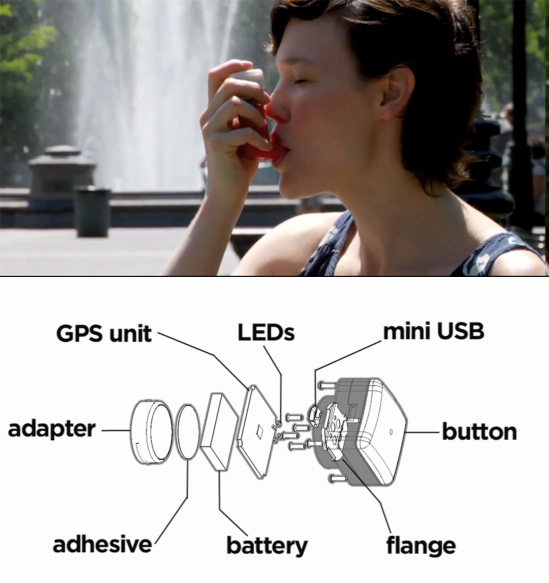Better Lives for Asthma Sufferers With GPS Inhalers
David Van Sickle, an epidemiologist and medical anthropologist by training, is looking to change how asthma is treated by creating high-tech inhalers that plot the time and GPS location of their use. One of the most common chronic diseases, better treatment for asthma could help over 300 million people worldwide and possibly prevent the over 50,000 annual hospitalizations in the U.S. alone.
Van Sickle’s company, Asthmapolis, is aiming to introduce a device that give patients valuable information about their disease. When a patient has an attack, he or she uses an inhaler to deliver medicine to stop the attack. Van Sickle’s device attaches to the patient’s existing inhaler, and logs the time and location of the use. In the advanced test models, it uploads that information to a central database via a wireless internet connection. The data would then be compiled and analyzed by Asthmapolis. By tracking the exact date, time, and frequency of attacks, doctors can provide better, targeted care to their patients
Though the device is still being tested, Van Sickle has already done some limited trials that have yielded good results for patients. In these trials, patients and their doctors received periodic reports about their attacks derived from the inhaler’s GPS data. With such precise information, patients could be given drugs that better fit the patient’s needs. Moreover, they can potentially pinpoint the environmental cause of their attacks and change their habits accordingly.
The most exciting possibility from this project isn’t on the individual level, but on a much larger scale. With enough inhalers in the hands of the public, regional maps showing the areas where asthma attacks are more likely to occur could be generated. For thousands of people in the U.S. alone, this could lead to better treatment, better quality of life, or even the elimination of asthma triggers from the environment.
Van Sickle hopes to have a consumer version of his smart inhaler available beginning this fall. A smartphone application, which works independently from the inhaler, is also being developed and could provide Asthmapolis’ analytical tools without the need for a specialize device. Look below to see a video of the GPS inhaler in action.
(The Economist via Geek.com)
Have a tip we should know? tips@themarysue.com
